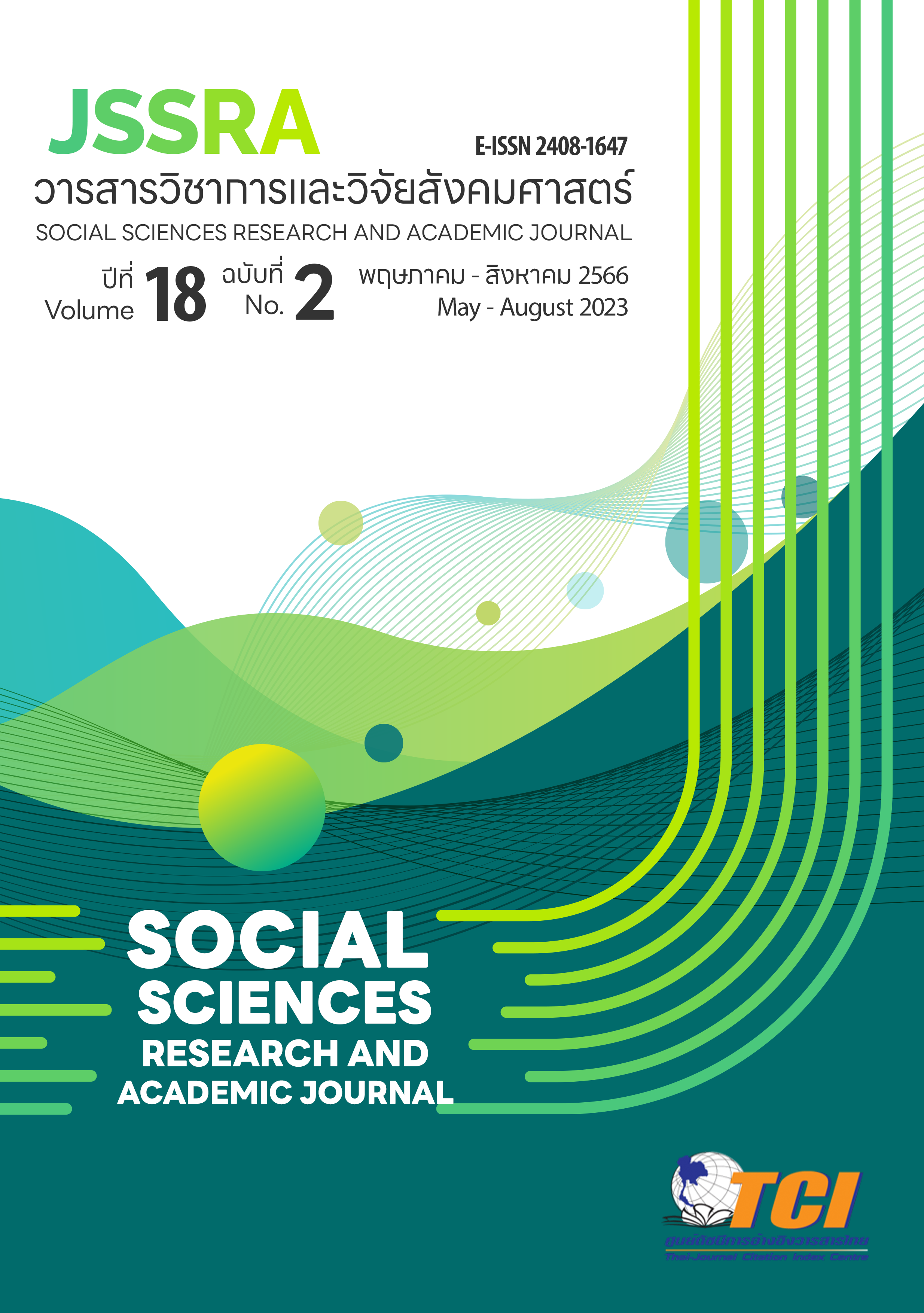ปัจจัยที่มีอิทธิพลต่อความตั้งใจซื้อสินค้าเพื่อสิ่งแวดล้อม กลุ่มเครื่องสำอางและบำรุงผิว Factors Influencing Green Purchase Intention of the Cosmetic and Skin Care Product
Main Article Content
Abstract
The objective of this research was to examine the factors of perceived corporate social responsibility, perceived product quality and product trust on green purchase intention in the cosmetic and skin care product. This quantitative research used the questionnaire to collect data from a sample of 328 consumers who have used green products of the cosmetic and skin care category. The research instrument was questionnaire. The statistics used in the data analysis were descriptive analysis and structural equation model analysis. The results found that the factors of perceived product quality and product trust have direct effects on green purchase intention. The factors of perceived corporate social responsibility and perceived product quality have direct effects on trust in environmental products. Whereas the factors of perceived corporate social responsibility have an indirect effect on green purchase intention. The results of this research provided guidelines for green product manufacturers and distributors to focus on marketing communications by providing truthful and interesting information about product quality and the environmental benefits that consumers will receive. This illustrates the characteristics and image of green products that influence the better satisfaction and trust of consumers.
Article Details
References
Aaker, D. A. (1991). Managing Brand Equity: Capitalizing on the Value of a Brand Name. New York: The Free Press.
Ahn, J., & Kwon, J. (2020). “CSR perception and revisit intention: the roles of trust and commitment”. Journal of Hospitality and Tourism Insights. 3(5): 607-623.
Ali, R., Munandar, J. M., & Syamsun, M. (2019). “The Effect of Green Perceived Quality, Green Perceived Value, Green Perceived Risk, Green Satisfaction and Green Trust in Stimulating Green Brand Equity Starbucks, West Java”. International Journal of Research & Review. 6(2): 74-78.
Carroll, A. B. (1991). “The pyramid of corporate social responsibility: Toward the moral management of organizational stakeholders”. Business Horizons. 34(4): 39-48.
Carroll, B.A. and Ahuvia, A. (2006). “Some antecedents and outcomes of brand love”. Marketing Letters. 17(2): 79-89.
Chen, Y. S., & Chang, C. H. (2012). “Enhance green purchase intentions. The roles of green perceived value, green perceived risk, and green trust”. Management Decision. 50(3): 502-520.
Chen, Y. S., & Chang, C. H. (2013). “Towards green trust: The influences of green perceived quality, green perceived risk, and green satisfaction”. Management Decision. 51(1): 63 – 82.
Chen, Y. S., Lin, C. Y., & Weng, C. S. (2015). “The influence of environmental friendliness on green trust: The mediation effects of green satisfaction and green perceived quality”. Sustainability. 7(8), 10135-10152.
Chen, Y.-S. (2010). “The drivers of green brand equity: green brand image, green satisfaction, and green trust”. Journal of Business Ethics. 93(2): 307-19.
Cheung, R., Lam, A. Y., & Lau, M. M. (2015). “Drivers of green product adoption: the role of green perceived value, green trust and perceived quality”. Journal of Global Scholars of Marketing Science. 25(3): 232-245.
Chuah, S. H. W., El-Manstrly, D., Tseng, M. L., & Ramayah, T. (2020). “Sustaining customer engagement behavior through corporate social responsibility: The roles of environmental concern and green trust”. Journal of Cleaner Production. 262(2020): 121348.
Duc, B.H., & Do Ba, K. (2017). Business responses to climate change: strategies for reducing greenhouse gas emissions in Vietnam. Asia-Pacific Business Review, 23(4), 1-2.
Fornell, C., & Larcker, D.F. (1981). “Evaluating Structural Equation Models with Unobservable Variables and Measurement Error”. Journal of Marketing Research. 18(1): 39-50.
Hair, J. F., Black, W. C., Babin, B. J., & Anderson, R. E., (2010). Multivariate data analysis: A global perspectives. Upper Saddle River, NJ: Pearson Education, International.
Hart, P. & Saunders, C. (1997). “Power and trust: Critical factors in the adoption and use of electronic data interchange”. Organizational Science. 8(1): 23-42.
Kotler, P., & Keller, K.L. (2016). Marketing management. Kendallville: Pearson Education.
Lee, Y. H., & Chen, S. L. (2019). “Effect of green attributes transparency on wta for green cosmetics: Mediating effects of CSR and green brand concepts”. Sustainability. 11(19): 5258.
Nguyen, T. T. H., Yang, Z., Nguyen, N., Johnson, L. W., & Cao, T. K. (2019). “Greenwash and green purchase intention: The mediating role of green skepticism”. Sustainability (Switzerland). 11(9): 1-16.
Paul, J., Modi, A., & Patel, J. (2016). “Predicting green product consumption using theory of planned behavior and reasoned action”. Journal of Retailing and Consumer Services. 29(2016): 123-134.
Saleem, A., Ghafar, A., Ibrahim, M., Yousuf, M., & Ahmed, N. (2015). “Product perceived quality and purchase intention with consumer satisfaction”. Global journal of management and business research. 15(1).
Srisathitnarakul, B. (2012). Development and Quality Inspection Research Tools: Psychological Measurement Features. Bangkok: Chulalongkorn University Printing Company.
Svensson, G. & Wagner, B. (2012). “Business sustainability and E-footprints on Earths life and ecosystems: Generic models”. European Business Review. 24(6): 543-552.
Tarabieh, S. M. Z. A. (2021). “The impact of greenwash practices over green purchase intention: The mediating effects of green confusion, Green perceived risk, and green trust”. Management Science Letters. 11(2): 451-464.
The United Nations in Thailand. (2015). Goals from MDGs to SDGs. https://www.un.or.th/glo. 1 March 2021.
Thi, Q., & Van, P. L. (2016). “Consumers' perception towards corporate social responsibility and repurchase intention: A study of consumer industry in Vietnam”. Industrial Engineering and Management Systems. 15(2): 173-180.


